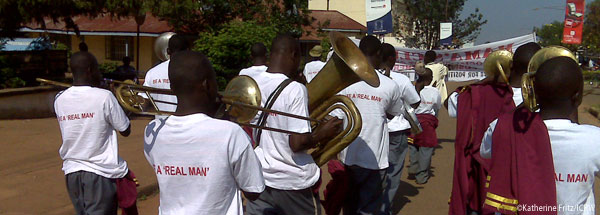
Recreating success
Media Contact
In November, I found myself retracing footsteps I last traveled 15 years ago through Mbale, a small town beautifully situated at the foot of Mt. Elgon on Uganda’s northeastern border. I lived in Mbale for a year in the mid-1990s when Uganda was considered the epicenter of the global HIV epidemic. At that time, the world watched and wondered how Uganda would bring itself back from the brink of disaster. Although I couldn’t fully appreciate it then, Uganda was making history. The inspired activism of HIV-positive individuals, combined with international donor commitment and strong government leadership, made Uganda the first African nation to beat back a raging HIV epidemic: It lowered its HIV prevalence from 15 to 5 percent between 1991 and 2001. Its success was proof that the epidemic could be contained and managed while respecting the human rights and dignity of those living with the disease.
Now Uganda is struggling again. The country faces a resurgent HIV epidemic with an estimated 124,000 new infections each year — twice the number for whom treatment is available. Women account for 60 percent of these new infections, and Ugandans widely acknowledge that gender inequalities thwart HIV prevention strategies. One strategy was the “ABC” prevention formula, which promoted abstinence, faithfulness in relationships and condom use. Reflecting on the shortcomings of ABC, one person I spoke with said, “An abstinent woman can still be raped, a faithful woman can still be infected in her marital bed and a woman who insists on condom use can still be beaten.”
Despite the current situation, Uganda is forming partnerships to recreate some of its earlier success in its battle against AIDS. For instance, over the past two years, ICRW has collaborated with the Uganda AIDS Commission, UNAIDS and other organizations to advocate for HIV prevention strategies that combat gender inequality as a driver of HIV risk. We also helped create a task force whose recommendations are being considered by the commission as it develops a new national prevention plan to cut new infections by 40 percent in five years.
Meanwhile, at the community level, many HIV programs in Uganda are creating opportunities for citizens to talk about how gender norms fuel the disease. While in Mbale, I had the privilege to attend the launch of one of them, called the Real Man Program. A satellite of the Mama’s Club Program, the male-focused effort enlists men as community educators and role models to encourage fathers to be involved in preventing HIV transmission from parents to children. The launch celebration included a street march where about 100 Mama’s Club and Real Man community volunteers, all of them healthy HIV-positive individuals, proudly walked as crowds of onlookers gathered.
The scene was familiar; in many ways, it seemed as though little time had passed since my time in Mbale. After all, HIV-positive people have been organizing, advocating and creating successful community-based programs for two decades in Uganda. I left feeling confident that despite whatever decisions are made – or not made – by policymakers in Kampala or Washington, change is in the hands of some courageous and capable people who have the commitment to make it happen.

